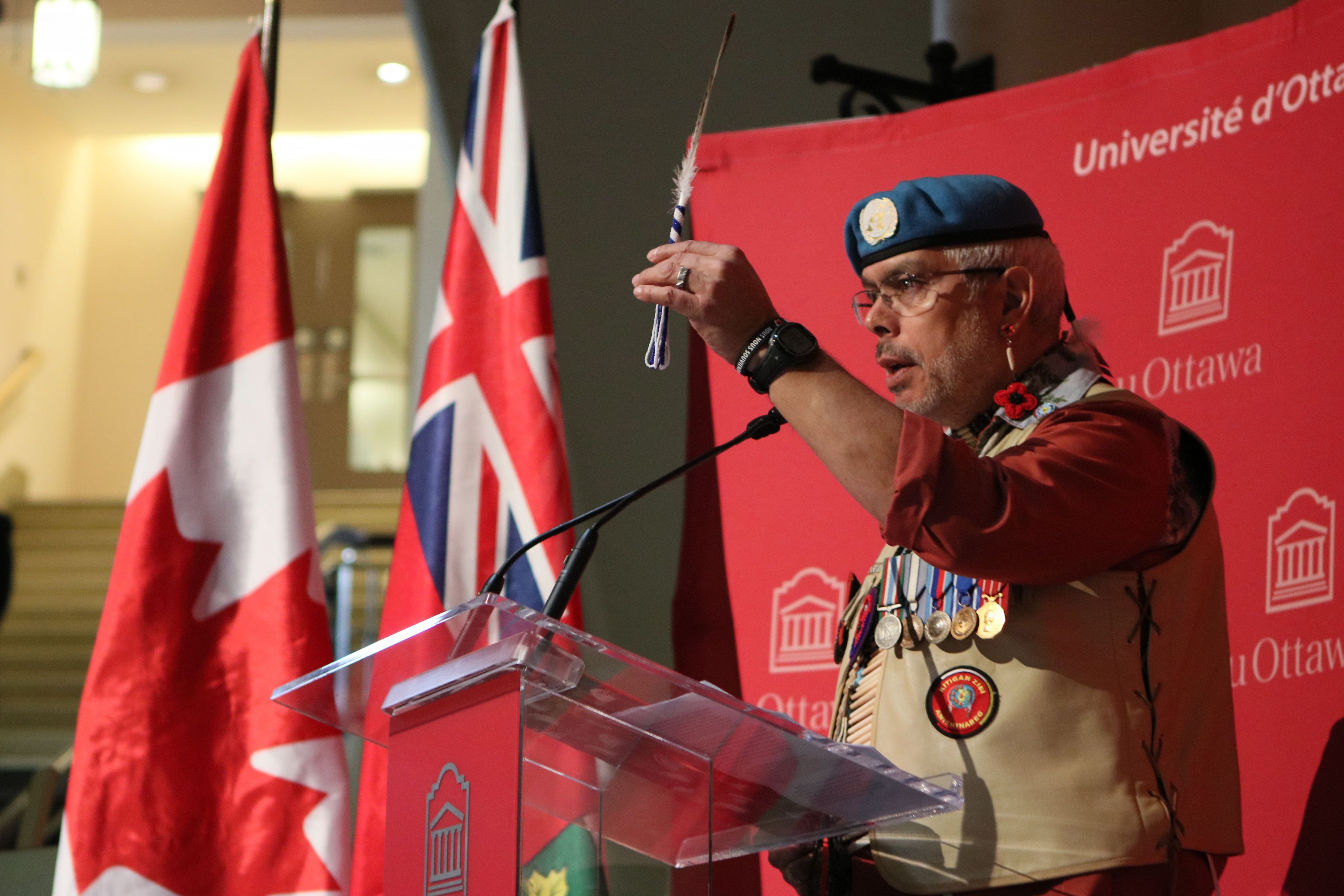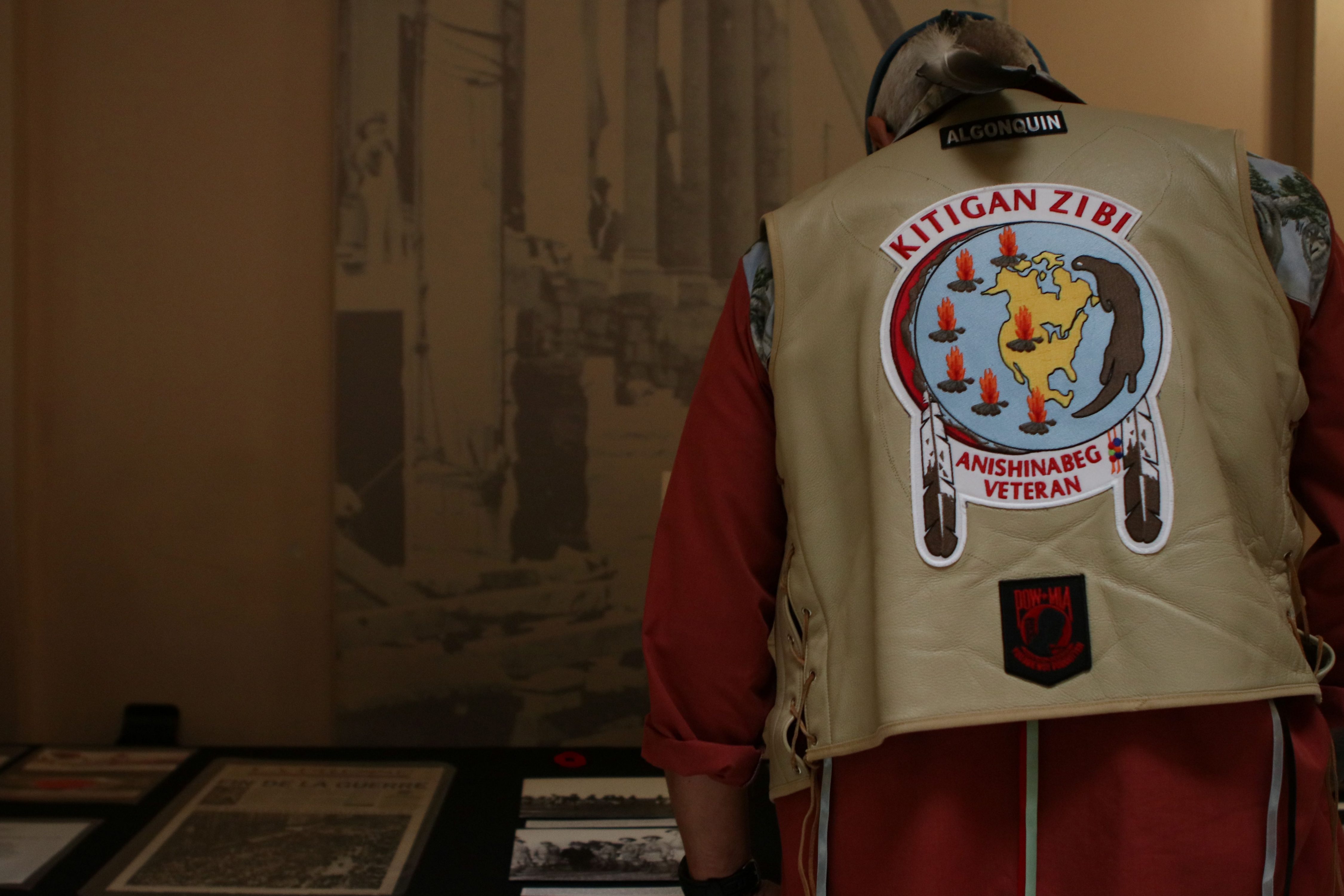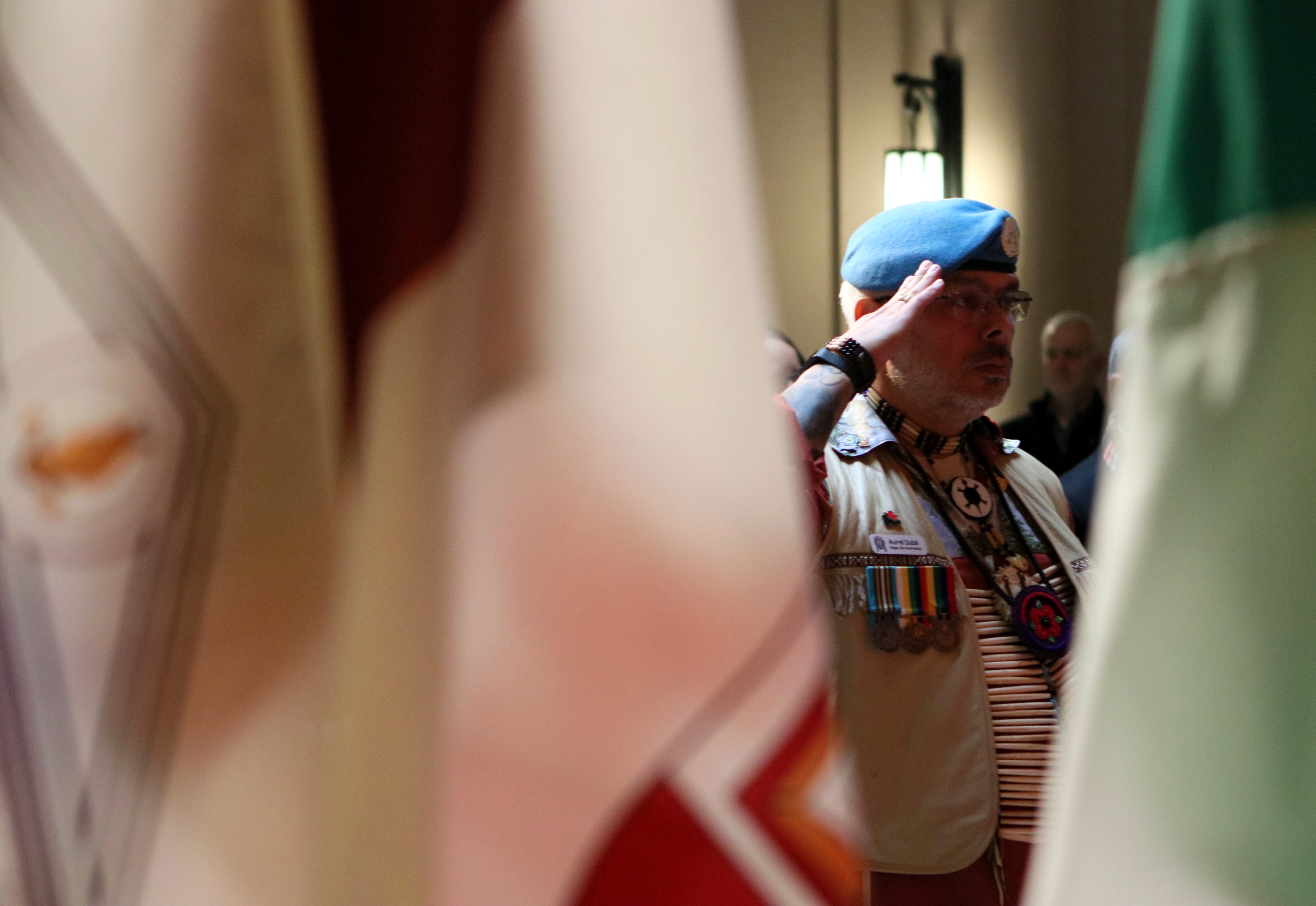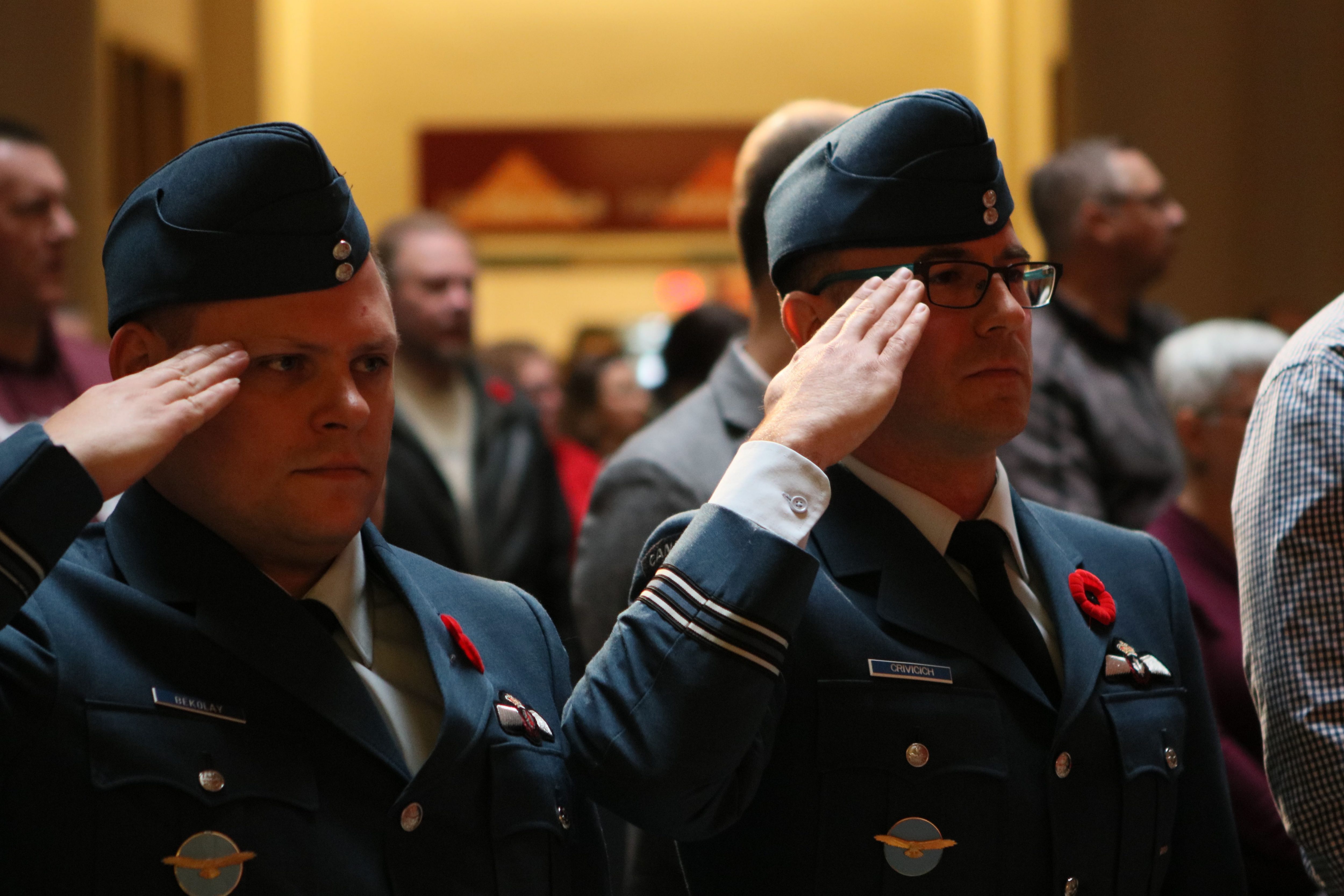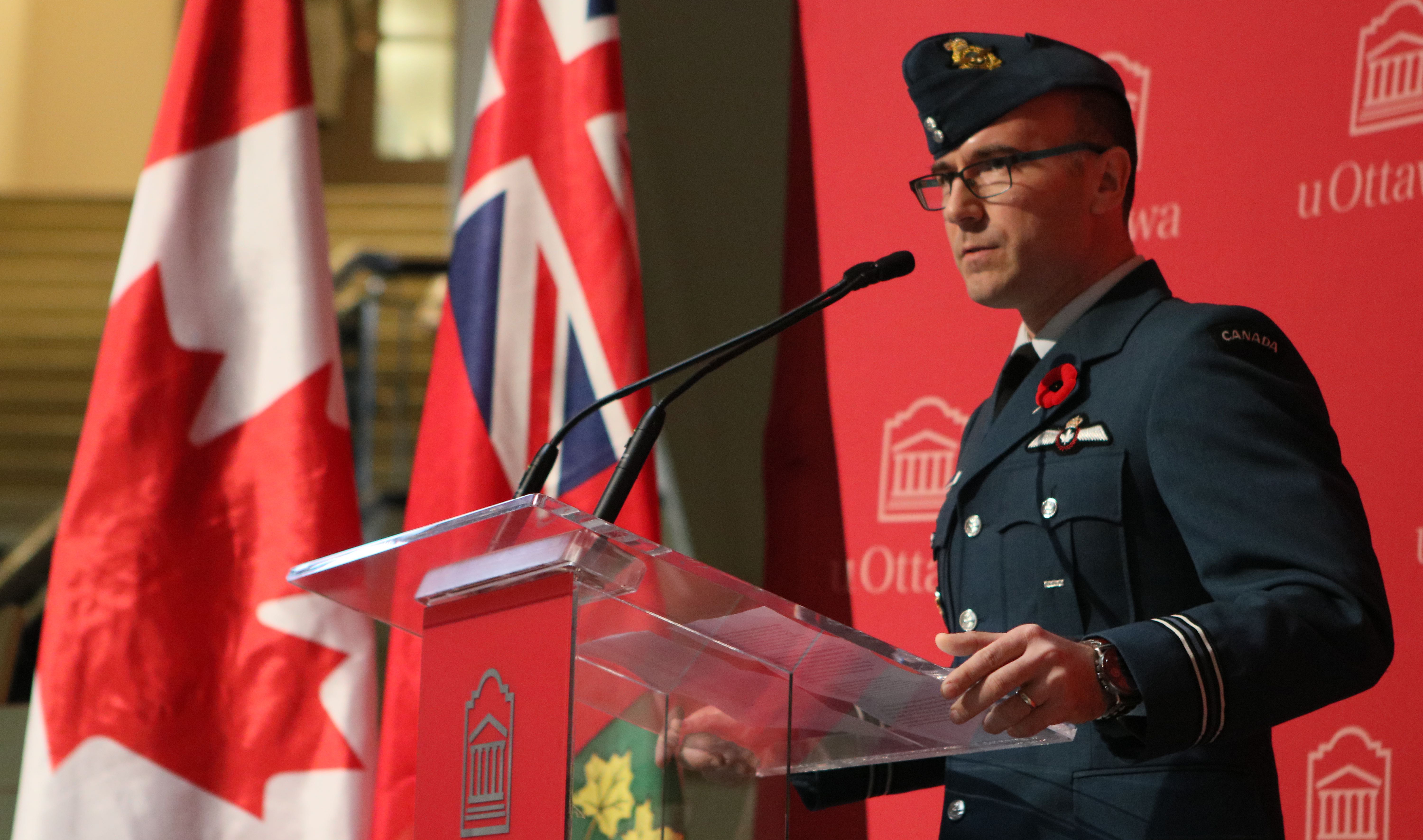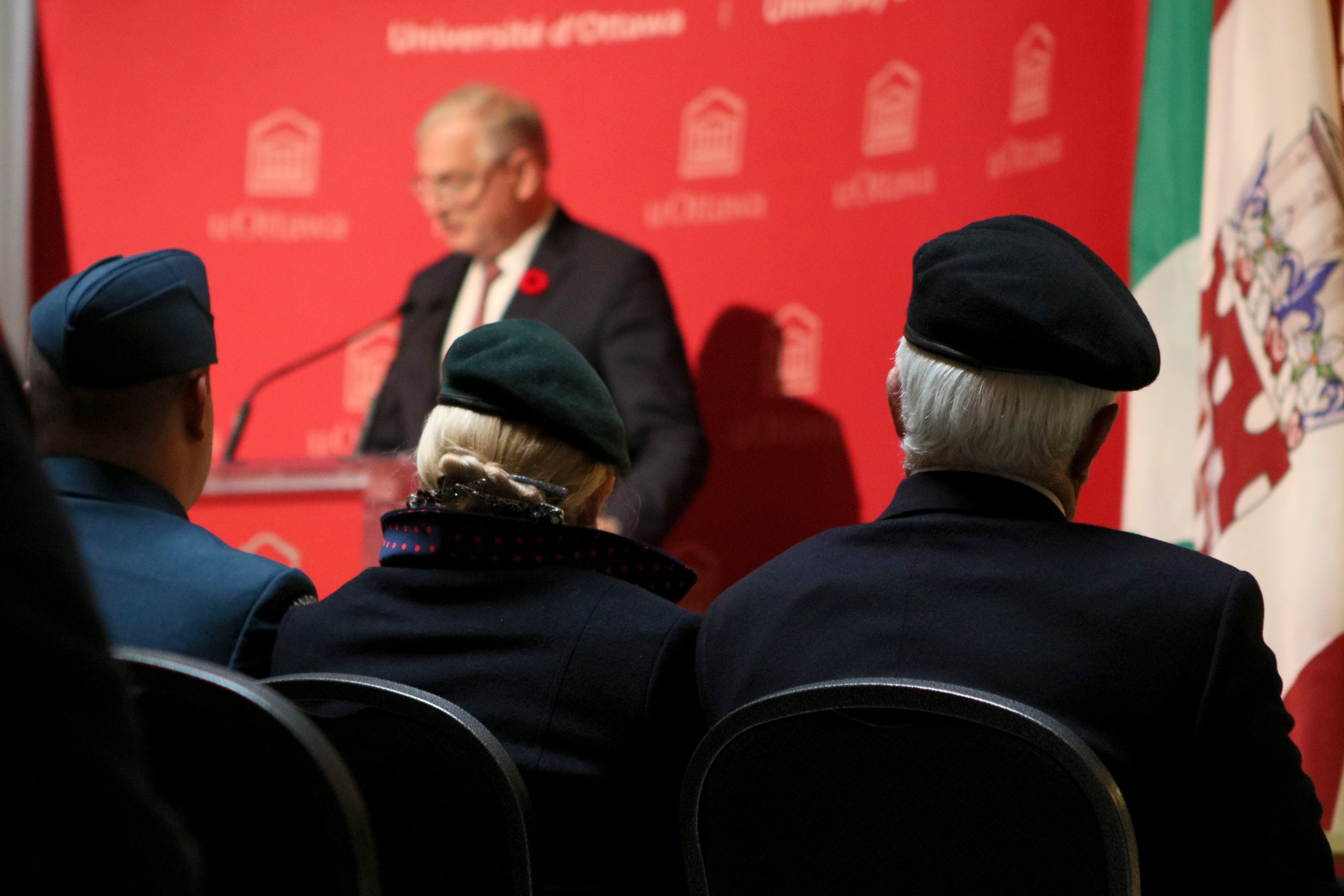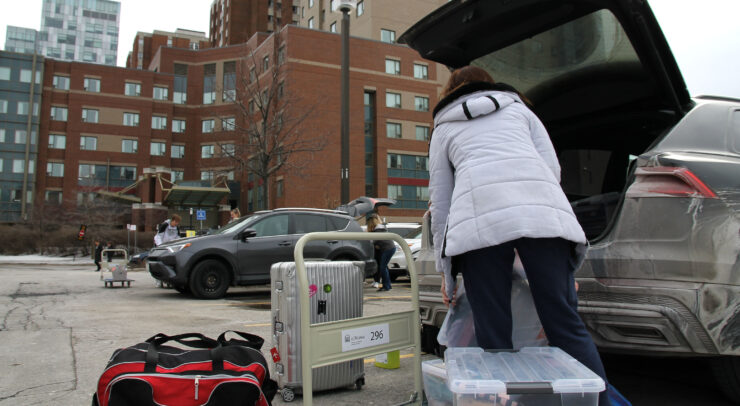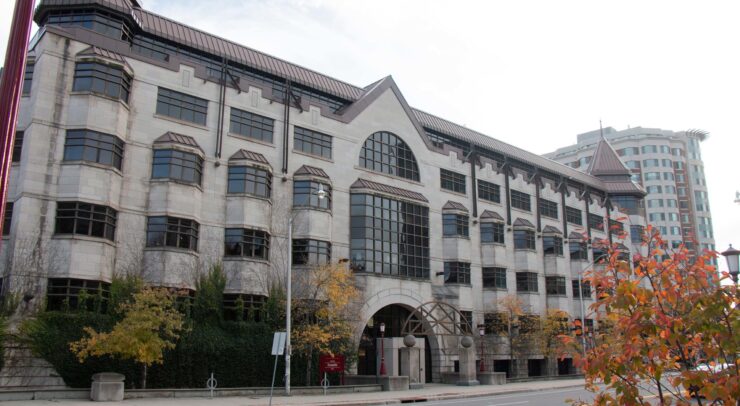Ceremony commemorates lives of Indigenous veterans, as well as U of O alumnus who is a search and rescue pilot
For the first time in the school’s history, an Indigenous wreath was laid at the University of Ottawa’s Remembrance Day ceremony at Tabaret Hall on Monday, an event that also honoured an alumnus who’s currently serving in the Canadian Armed Forces.
Algonquin veteran Aurel Dubé, who served 22 years in the Canadian Armed Forces, was invited to lay down the Indigenous Affairs wreath, which sat alongside the wreaths representing the Canadian Forces, the U of O, and their student unions.
According to Veteran Affairs Canada, more than 7,000 First Nations members served in the First World War, the Second World War, and the Korean War. An unknown number of Inuit, Métis and other Indigenous peoples also fought in the same conflicts, bringing the estimated total amount of Indigenous peoples to have fought in the three wars to 12,000.
“We will remember them. Miigwech,” Dubé said to the crowd, following a speech that he gave in Ojibwe.
U of O president and vice-chancellor Jacques Frémont also commemorated the lives of those Indigenous peoples who have served during times of war.
“It is estimated by Northern Affairs Canada that an extraordinary 30 per cent of all Indigenous (peoples in Canada), aged 18 to 45, enlisted during the First World War,” Fremont said. “We honour the courage, dedication, sacrifices of the Indigenous warriors who have served and continue to serve in Canada.”
He added that Canadians should also honour those “whose duty is also to conduct dangerous, life-saving missions on Canadian land, ice and sea.” He then invited U of O alumnus and search and rescue (SAR) pilot Cpt. Marc Crivicich of the Candian Armed Forces to the podium.
“I join you today as a proud member of the Canadian Armed Forces, having served in uniform since 2006,” said Crivicich. “As a Griffon helicopter pilot, I have been humbled with numerous rescues and missions over the past three years, including four major searches this year alone.”
As a member of the 424 Transport and Rescue Squadron that’s based in Trenton, Ont., Crivicich’s squadron is responsible for conducting search and rescue missions throughout Alberta, the Maritimes and all of the Arctic.
“Our missions often take us into inclement weather and dangerous scenarios to rescue Canadians in distress,” he said. “The search and rescue technician motto is that ‘Others May Live’, and is embodied throughout our community with our training, professionalism, dedication and sacrifice.”
He reminded those in attendance to take some time out of their day to remember and pay respect to those in uniform — past and present.
“I challenge each of you to find stories that are memorable or significant, and share them with your family, friends and colleagues,” he said. “Retelling the oral histories of your ancestors, family or friends keeps them relevant to Canadians, especially for those that may not have a personal connection of their own.”
Once the speeches concluded and wreaths were laid, the ceremony ended with the singing of the national anthem, which was performed by the U of O’s Choral Ensemble.
“The past is written, and we now bow our heads in honour of those who wrote it. The future is ours to write,” said Frémont.


